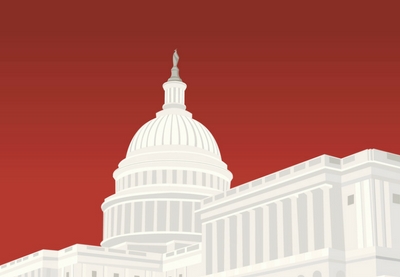What CPAs Need to Know About the One Big Beautiful Bill Act
–
July 31, 2025

On July 4, 2025, President Trump signed the One Big Beautiful Bill Act (OBBBA) into law, marking the most significant overhaul of the federal tax code since the Tax Cuts and Jobs Act (TCJA) of 2017. Passed through budget reconciliation, the OBBBA permanently extends several key TCJA provisions that were set to expire and introduces new provisions affecting individuals, businesses and the tax professionals who serve them. These changes carry significant implications for tax planning and compliance, making understanding and implementation essential for CPAs and tax professionals ahead of the 2025 filing season.
Key Highlights
- Tip and overtime pay: A new deduction was established for earned income from tips and overtime pay for tax years 2025 through 2028, creating potential tax savings for qualifying taxpayers.
- Senior deduction: A temporary personal exemption deduction of up to $6,000 is available for individuals aged 65 or older for tax years 2025 through 2028.
- Trump accounts: This new tax-favored savings account is designed to support future investments in education, housing, and entrepreneurship for children.
- Car loan interest deduction: For tax years 2025 through 2028, a new deduction is available for interest on certain car loans, offering potential tax benefits for qualifying personal-use vehicles.
- Section 1202 exclusion: The OBBBA expands the Section 1202 exclusion for qualified small business stock by introducing tiered gain exclusions based on holding periods, increasing the per-issuer gain exclusion cap, and raising the corporate gross asset limit.
- SALT deduction dap: The SALT deduction cap is increased to up to $40,000 (indexed for inflation through 2029) with a phase-down for high-income taxpayers.
- Bonus depreciation: The OBBBA permanently reinstates 100% bonus depreciation and creates a new special depreciation allowance for qualified production property.
- Key TCJA provisions made permanent: The OBBBA makes several TCJA provisions permanent, including lowered individual tax brackets, increased standard deductions, and the repeal of personal exemptions, providing greater long-term planning certainty for individuals and families.
These updates will affect tax planning in 2025 and beyond. See the events listed below, and join us for in-depth training on OBBBA. You’ll walk away with practical strategies for yourself and your clients.
The information in this guide has been gathered from many sources, including the Internal Revenue Service, the Social Security Administration, state agencies, professional organizations and members of the NJCPA. The majority of state agencies offer online and prerecorded services. It’s best to check online or call before you visit.
Material contained within this guide should be augmented by, and used in accordance with, a certified public accountant's professional judgment. Your CPA can properly apply the tax laws and regulations to the facts and circumstances of your particular situation. For help with locating a CPA, visit findacpa.org.
The New Jersey Society of Certified Public Accountants is not responsible for any claims arising as a result of this information or its usage.
This guide was updated in September 2025. Future users of this material are cautioned that some portions, particularly tax-related information, may become outdated.